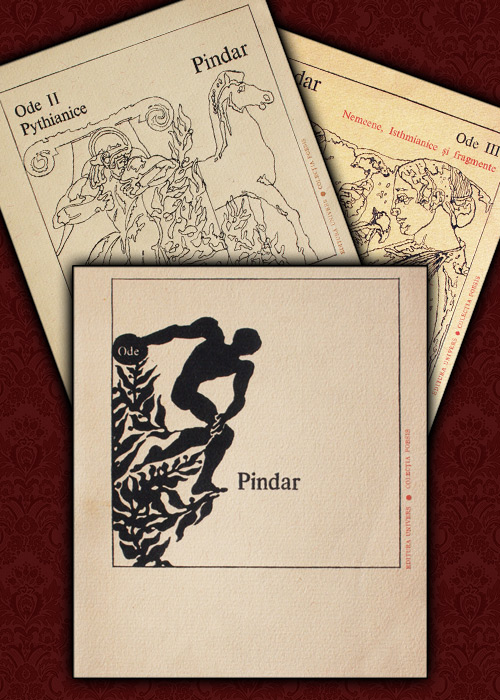
One should not forget mentioning the victors who inspired Pindar to compose his 14 Olympic Odes, however little these names mean to us today. Though, as glorious as a past might have been and, as many good possibilities a man might have, he cannot reach victory without personal effort and labour.įinally, with regard to the language in the hymns of Pindar, it is the Doric dialect, with some elements from the Aeolic and a few of the Boeotian dialects. In the main part of the hymn, a mythological narrative is presented or reinterpreted, and the poet concludes by expressing his personal thoughts as well as wishes for the athlete’s future victories.Īccording to Pindar, the achievement of victory requires the combination of three key factors: divine favour and assistance, inherited virtue and personal effort that will activate the inherited predisposition. At the same time, past victories of the winner or those of his family members’ is celebrated.

Following, reference is made to the name and origin of the victor, then to the sport and the location where the contest took place. The Olympian Odes of Pindar, like all of his epinician hymns, start with a preamble, usually containing an invocation to a deity or personified idea. You can follow both the original Greek text or an English translation online at the Perseus Library, or at for the Greek text accompanied by one version of the metre for each Ode. The longest epinician is the fourth Pythionic, which consists of 13 strophic triads. The epode had a different metre than the first two.

The first Olympic Games were held in 776 BC.Įach of these odes had the structure of simple strophes in metrical correspondence, or the structure of strophic triads in the form of a strophe – antistrophe + epode.

Fourteen of them are dedicated to Olympic victors, the winners of the most important pan-hellenic athletic event taking place every four years. In particular, the Olympian Odes concern the Olympic games in honor of Jupiter, the Pythian ones the corresponding games in Delphi in honor of Apollo, the Isthmian the games that took place at the Isthmus by Corinth in honor of Poseidon and finally the Nemean Odes praised the victors at the games of Nemea, also honouring Zeus.Īs a whole, the surviving epinician hymns number 45. The lyric poet Pindar has composed four groups of epinician (triumphal) hymns, addressed or referring to the winners of the four major Pan-Hellenic contests.


 0 kommentar(er)
0 kommentar(er)
